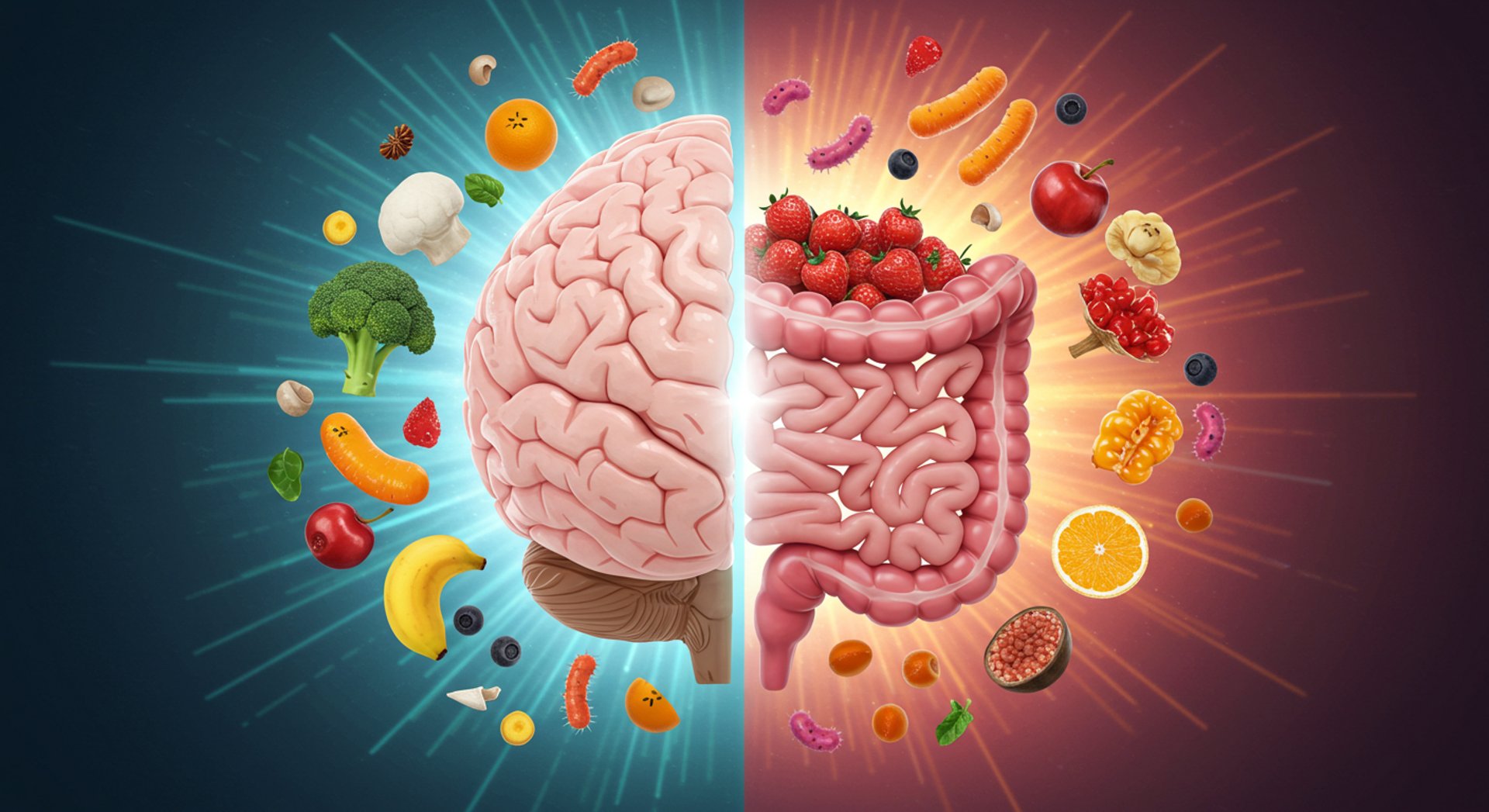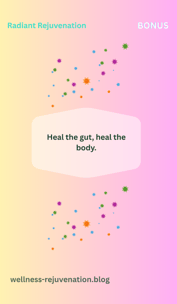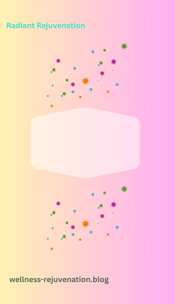Gut Health and Depression: The Hidden Link You Need to Know
Discover the powerful connection between gut health and mental well-being in this eye-opening blog post. Learn how an imbalanced gut microbiome can contribute to depression, anxiety, and cognitive issues. We dive into the science behind the gut-brain axis, explore the role of probiotics for mental health, and share actionable diet and lifestyle changes to naturally improve mood and emotional resilience. Take control of your health today and find out how healing your gut can lead to a happier, clearer mind!
By Pamela, Radiant Rejuvenation
12/2/20243 min read

Gut Health and Depression: The Hidden Link You Need to Know
Introduction
Did you know that your gut could be influencing your mood more than you think? Research is uncovering a powerful connection between gut health and mental well-being, often referred to as the gut-brain connection. If you've been struggling with low mood, anxiety, or even depression, your microbiome might be playing a bigger role than you realize.
Understanding how gut imbalances contribute to depression can help you take control of your mental health naturally. In this post, we'll explore the science behind gut health and depression, the role of probiotics in mental well-being, and simple diet and lifestyle changes that can help restore balance.
1. The Gut-Brain Connection: Why Your Microbiome Matters
Your gut and brain are in constant communication through the gut-brain axis, a complex network linking your digestive system with your central nervous system. This connection explains why an unhealthy gut can contribute to mood disorders such as anxiety and depression.
How Gut Bacteria Influence Mood:
✔️ Vagus Nerve: This "superhighway" carries signals between the gut and brain, impacting emotions and stress levels.
✔️ Neurotransmitter Production: Your gut produces 90% of the body's serotonin, the key neurotransmitter responsible for happiness and emotional balance.
✔️ Inflammation & Brain Health: An imbalanced microbiome can trigger inflammation, which has been linked to depression and cognitive decline.
2. The Science: How Gut Imbalances Contribute to Depression
When your gut microbiome is out of balance, harmful bacteria can outnumber beneficial ones, leading to inflammation, impaired serotonin production, and poor mental health.
Key Ways Gut Imbalances Affect Mood:
🔹 Chronic Inflammation: A leaky gut can allow harmful toxins to enter the bloodstream, causing inflammation that affects brain function.
🔹 Serotonin Disruption: With most serotonin produced in the gut, an unhealthy microbiome can lead to deficiencies that contribute to depression.
🔹 Stress & Cortisol Levels: An imbalanced gut can increase stress hormone levels, making it harder to cope with daily challenges.
💫 Want wellness content made simple?
The Radiant Rejuvenation Gut Health Quote Pack gives you 30 beautifully designed quotes, a Canva template, and a guide to help you share your light.
🎁 Click here to download your pack
3. Probiotics for Mental Health: Can Good Bacteria Lift Your Mood?
One of the most effective ways to improve gut health is by incorporating probiotics—beneficial bacteria that restore microbiome balance and support mental well-being.
Best Probiotic Strains for Mental Health:
✅ Lactobacillus rhamnosus – Reduces anxiety and stress levels
✅ Bifidobacterium longum – Helps alleviate depressive symptoms
✅ Lactobacillus helveticus & Bifidobacterium bifidum – Improve emotional resilience
Studies show that people who take probiotics experience better mood, reduced stress, and improved cognitive function.
4. Diet & Lifestyle Changes to Support Gut & Mental Health
The right diet and habits can significantly improve both gut health and emotional well-being. Here’s how to get started:
Gut-Friendly Foods to Eat:
🥑 Prebiotics (feed good bacteria): Garlic, onions, bananas, asparagus
🥒 Probiotic-rich foods (restore balance): Yogurt, kimchi, sauerkraut, kefir
🌾 Fiber-rich foods (support digestion): Whole grains, beans, leafy greens
What to Avoid:
❌ Processed foods and artificial sweeteners
❌ Excess sugar, which feeds harmful bacteria
❌ Overuse of antibiotics that wipe out good gut flora
Lifestyle Factors That Boost Gut & Mental Health:
🌿 Reduce Stress: Meditation, yoga, deep breathing
💤 Prioritize Sleep: Poor sleep disrupts gut bacteria balance
🚶 Stay Active: Regular exercise promotes a healthier microbiome
5. Final Thoughts: Healing Your Gut for Better Mental Health
Your gut health plays a crucial role in emotional well-being. By improving your microbiome, you can reduce symptoms of depression, boost serotonin levels, and regain mental clarity.
By making small, consistent changes, you can transform both your gut health and mental health—one bite at a time! 🍏🧠
💚 Feeling inspired?
Grab the Radiant Rejuvenation Gut Health Quote Pack—30 beautiful quotes, Canva templates, and a bonus mini guide to help you share your light.
👉 Click here to get yours now








